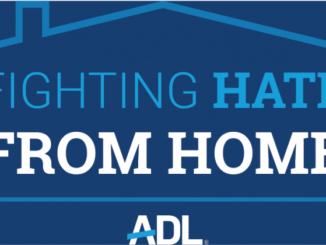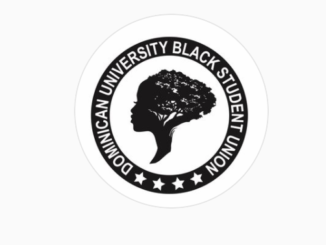
Joseline Cano
Features Editor
Freshman Vincenzo Cerasuolo was attracted to Dominican’s message of diversity. It wasn’t long after the beginning of his rst semester when he realized that “diversity” did not include his conservative mindset.
“Diversity means diversity of thoughts, ideas, beliefs. Acceptance drew me here. Now after a few months of being on campus, conservative thoughts and ideas, there aren’t as many,” said Cerasuolo. “It’s almost like censorship. If you’re going to say diversity, where’s the room to speak out or talk about issues as a conservative without the backlash?”
Cerasuolo represents a portion of Dominican students with conservative ideas and beliefs that feel as if they don’t have platform to speak up on campus.
According to the CIRP, Cooperative Institutional Research Program, survey, 10.9 percent of 394 students in the class of 2021, 8.9 percent of 468 students from class of 2020, and 9.4 percent of 435 students from class of 2019 identify as conservative. Data results has not been published for class of 2022.
When trying to reach out to more students to share their stories on the matter, many declined stating they were either too scared or were not comfortable speaking about it.
“I think people view us as white nationalists, racists, homophobic. It is not true. I am not a white nationalist. I am not racist. I am not homophobic. As a conservative, I don’t agree with everything the Republican party does. I am a good guy. We just have different opinions and I am not going to treat you any differently because of that. I respect you. Erase all the stigmas.”
According to an article titled “In Defense of Viewpoint Diversity” by Insider Higher Ed, viewpoint homogeneity is a problem in the classroom stating that “such diversity can help produce novel solutions to (nonpolitical) problems, counteract con rmation bias and expand the range of topics researchers consider.”
David Dolence, chair of the department of political science, said, “I can say that Dominican is probably better than many campuses. However, they are far from a healthy acceptance of conservative voices to advance good intellectual debate.”
“It is probably more accurate to say Dominican is tolerant of conservative viewpoints, but that is not the same as acceptance. Tolerance, by de nition, implies that an opinion is not true, but we will allow it to be spoken – as a sign of our superior position,” said Dolence. “But if that is followed by a stream of criticism that cannot be countered without penalty, then it is tolerance rather than acceptance.”
In 2010, Dominican Star ’s editor Sara Scheler published a letter questioning Dominican’s lack of political diversity, stating that the non-liberal mindset was not welcomed on campus. In the letter, Scheler wrote, “We [Dominican] try so hard to be inclusive and fair but we leave people out in the process. We focus on certain targeted groups: homosexuals, undocumented students, women – and ignore everyone we determine is doing just fine, the privileged, and those we believe have caused the problems in our society (mainly white people and males).”
“If you see me in the hallways after reading this, don’t look at me and think ‘Oh he’s a conservative, I don’t want to be his friend.’ Don’t brand me or any conservative students.”
-Cerasuolo
Dominican’s students, faculty, and sta were not happy with what was written. The Star began receiving letters and comments from readers questioning the intent behind the post. According to Scheler, she received some positive messages from students thanking her for speaking out and o ering an alternative viewpoint.
Most comments were negative. Scheler, who is now living in Denver, said, “The administration constantly spoke about diversity and wholeheartedly promoted the accepting culture of Dominican. At the time, I disagreed that Dominican was a wholly accepting community.”
Like Cerasuolo, Scheler felt like the stigmas around the conservative identity were far from the truth. “I did not feel as I was part of the problem. I advocated for social justice, I volunteered, I was in a healing career. I was made to feel unwelcomed and unrepresented.”
Dominican has created an open platform for students of different racial and ethnic backgrounds, gender identities, sexual orientation, economic background, and legal status. This platform has been showcased with a series of clubs and events to get the student body involved as well as in-class discussions on current political and social issues.
Cerasuolo, whom agrees and supports the creation of these platforms, has decided to create his own to give people of multiple ideologies and beliefs a voice. He is currently working on starting his own club on campus named Vox Populi, Latin for voice of the people.
Hoping to begin Spring 2019, Vox Populi will be centered around having healthy debates and discussions on prominent issues in our communities.
“In order for there to be diversity, we need all sides of the story,” said Cerasuolo. “There should be no fear when speaking out. We’re trying to teach students how to have a formal discussion without getting angry, without interruption, and actually think about what someone else is saying.”
Students from every single political and social background are invited to join in on these open discussions. Cerasuolo also hopes to implement information sessions garnered towards one certain political belief to give students of the opposite political identity to familiarize themselves with their issues and arguments.
Dolance said, “I believe the students are far better at creating open space outside the classroom for dialogue than the administration or faculty and that is a tribute to the fact that our students are often better people from whom we could learn. “
Cerasuolo’s end goal is to create a Dominican campus with diversity and acceptance of all ideologies.
“If you see me in the hallways after reading this, don’t look at me and think ‘Oh he’s a conservative, I don’t want to be his friend’. Don’t brand me or any conservative students.”
canojose@my.dom.edu



